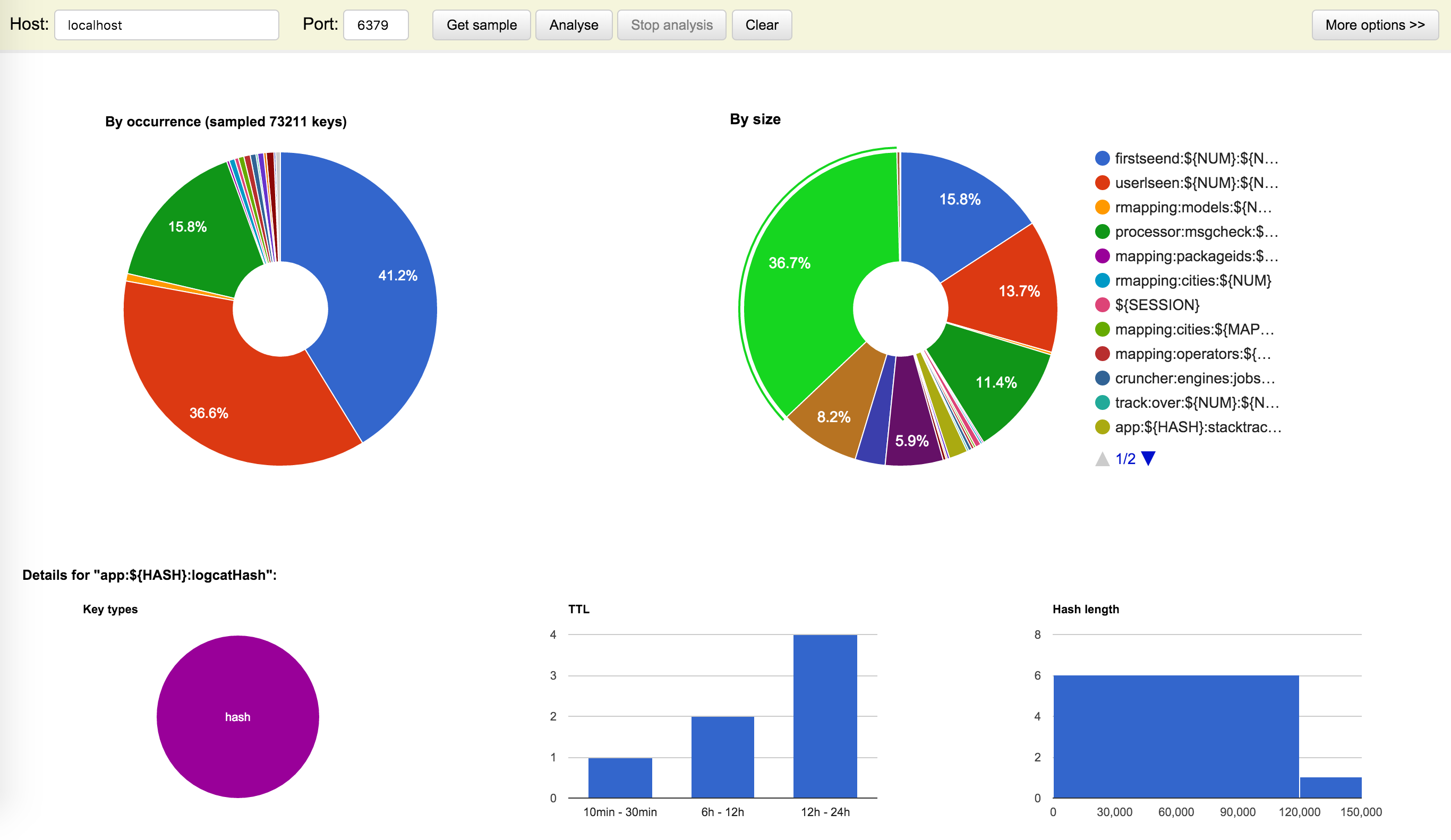redis-visualize
v0.1.1
Published
A module to sample redis keys and provide summary data
Maintainers
Readme
Redis Visualizer
Redis visualizer is an utility to sample and visualise keys in your Redis instance. It was insprired by the command line redis-sampler tool (https://github.com/antirez/redis-sampler), with the goal to provide better user interface.
Using it is pretty straightforward, install the package globally with:
npm install -g redis-visualize
And run it using:
redis-visualize
This will start a webserver on port 8079, and you can connect to it using your web browser, where you'll be able to specify address, port and password of the actual Redis host and start sampling.
Similar keys are automatically clustered using regular expressions run on the key itself, and you're free to modify the regexes to customize the clustering.
It is highly recommended to run the utility in the same network as the redis host and port forward just the HTTP port instead of port forwarding the redis port. This will achieve much higher sampling throughput.
Example output:

